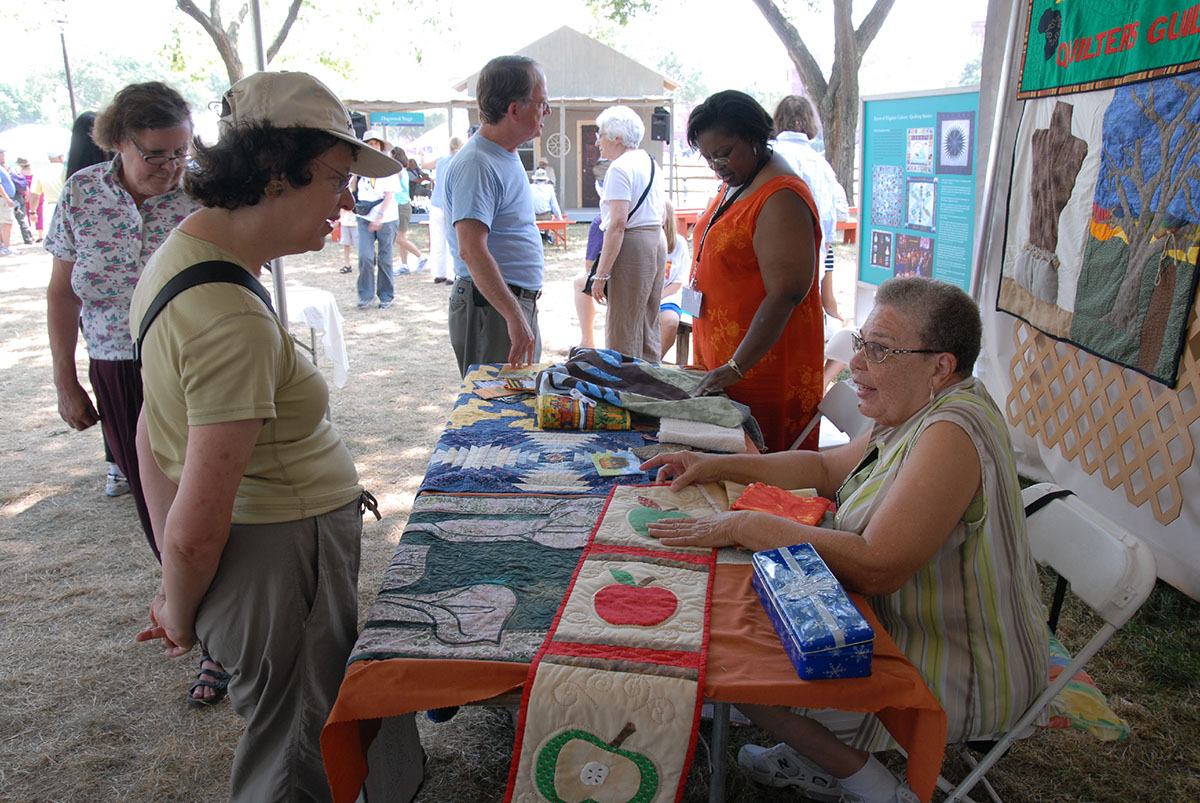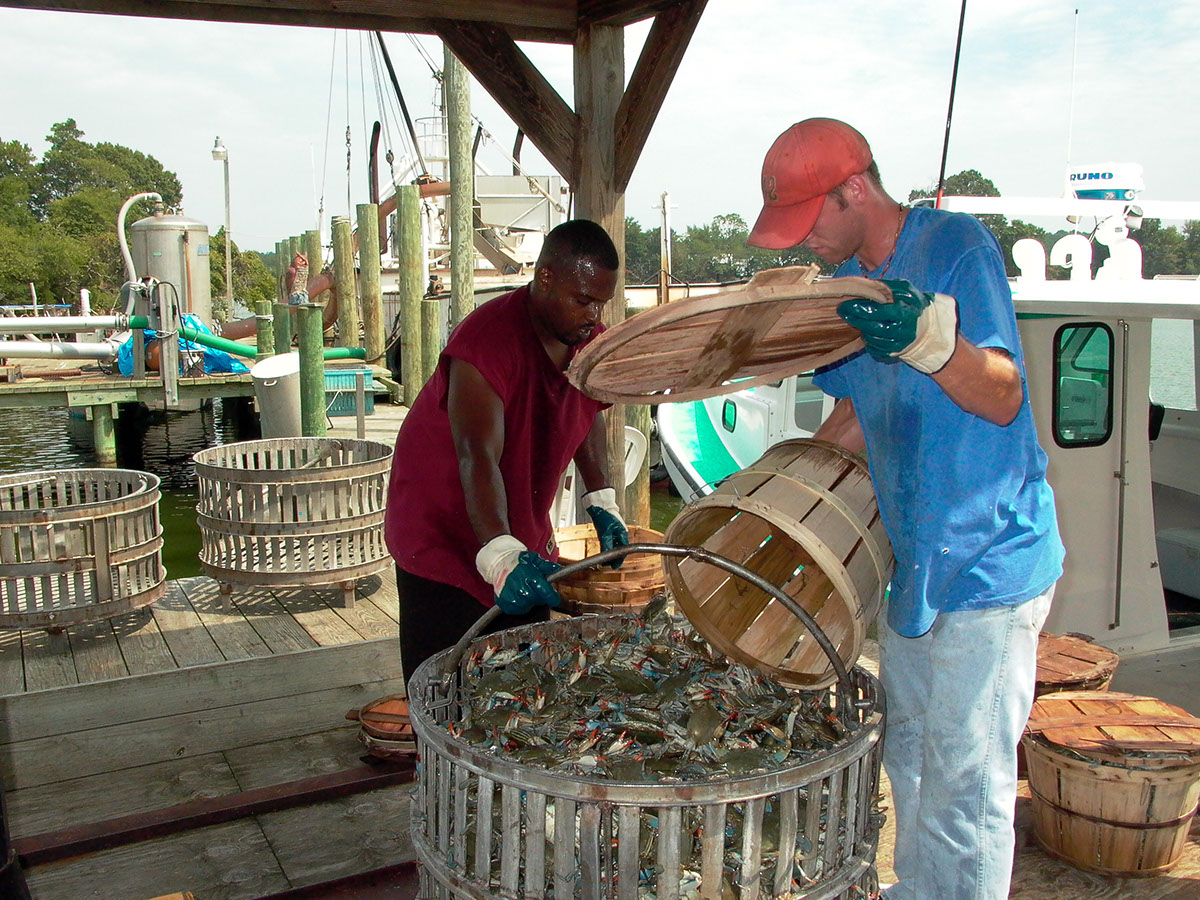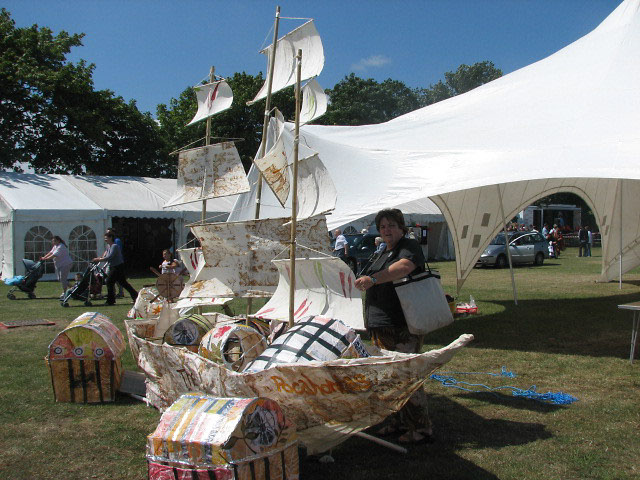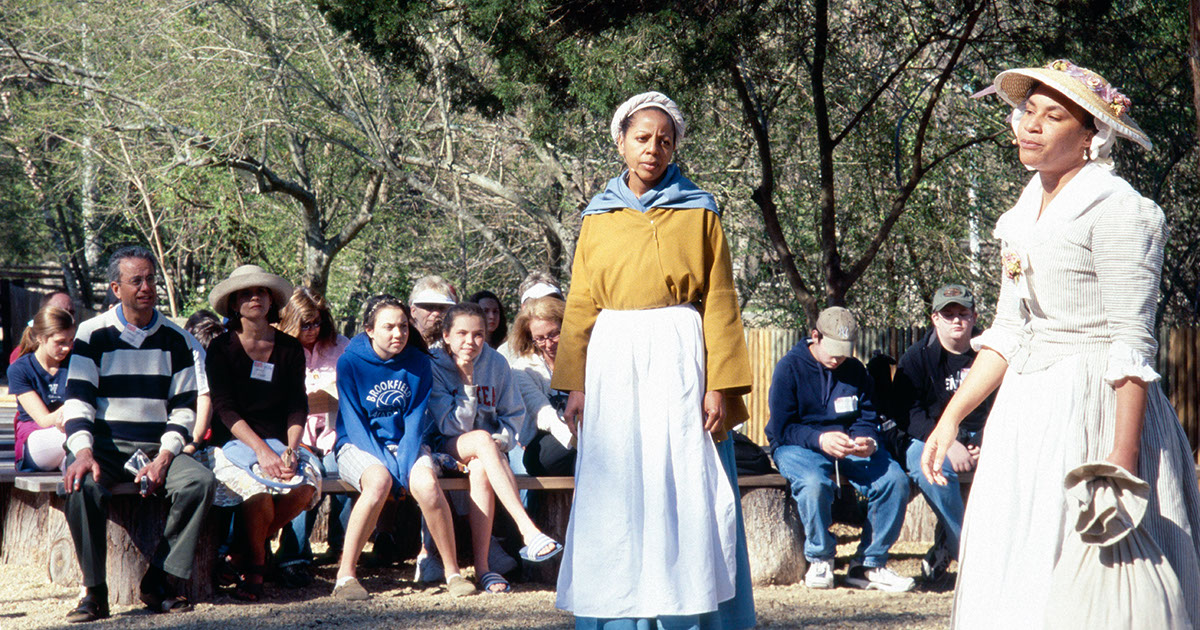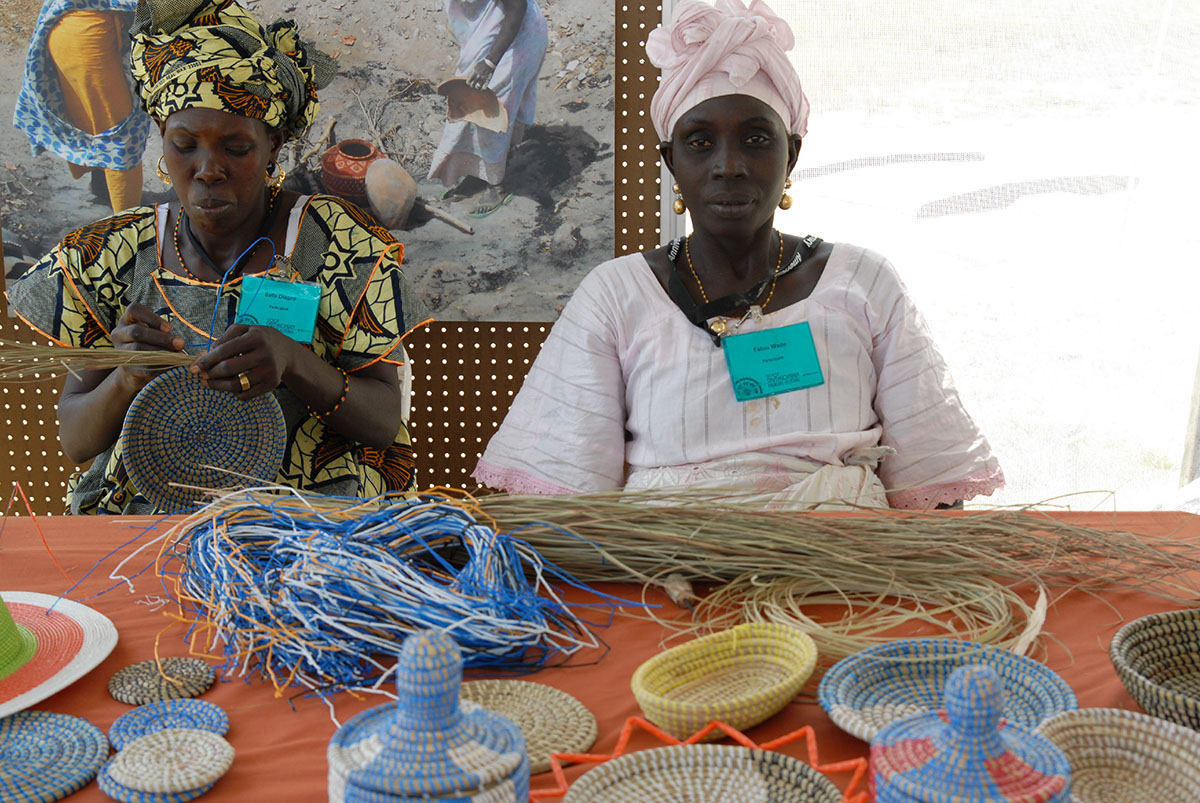Today's Virginians include people whose ancestors have always been here, descendants of the original Jamestown settlers, the progeny of the first West Africans, and more recent immigrants from Africa, Southeast Asia, and Central America. They live and work from Virginia's Atlantic coast to its Appalachian Mountains, from remote coal-mining towns in the southwest to bustling suburbs in the north. But no matter how deep their roots, Virginians strive with dedication and innovation to document and present their cultural heritage, adapting tradition to change and using the past to inform the present and future.
The 2007 Festival explored three "roots" of Virginia's culture: Native American, English, and African American. These groups supported the growth of a diverse, yet unified society in what would become Virginia. At the Festival, present-day Virginians were joined by delegations from Kent County, England (one of the counties from which the original settlers came and the burial place of Pocahontas) and West Africa (an area from which many enslaved Africans came to Virginia). By demonstrating and performing many parallel cultural traditions side by side, craftspeople, musicians, cooks, agriculturalists, and maritime experts demonstrated that different cultures can have much in common and can borrow from each other to forge a nation. Festival presentations were organized around three themes:
• Continuing the Past. Many traditions in Virginia; Kent County, England; and West Africa remain "unbroken" within families and communities. A number of crafts, such as pottery, blacksmithing, wood carving, and needlework, span the generations; craftspeople interpret and produce them according to their own tastes and market demand. Festival visitors could interact with contemporary adherents of these ancient traditions.
•Transforming the Past. While tracing the roots of Virginia culture, historians find many tradition bearers who, by necessity or desire, refashion their skills. For example, in Virginia, as well as in Kent County, England, fruit farmers find it hard to keep their businesses profitable because of cheaper imports; many have quit farming and have sold their land to developers. Growers have responded and now gourmet cooks can find heirloom varieties of Virginia apples at farmers' markets. The growers bring the taste of Virginia's past to the present and make it profitable and sustainable.
• Researching and Interpreting the Past. The ability to research and interpret the past requires years of study, determination, and "learning by doing." Digging up the past is the professional passion of archaeologists at sites such as Historic Jamestowne. Family and community researchers collect oral histories and search for clues in archives and databases. Festival visitors could listen as they explained their work, and could pose questions about adapting such skills to their own lives.
Betty J. Belanus was Curator of the program, and Diana N'Diaye was Curator of African/African American Roots. Dorey Butter was Program Coordinator and Beverly Simons was Program Assistant. For Jamestown 2007, Jeanne Zeidler was Executive Director and Amy Ritchie was Manager of Statewide Programs and Smithsonian Project Manager. For Kent, England, Rebecca Casson was Head of Kent Virginia Development; Hollie Snelson was Smithsonian Project Manager; and Leila Maggs was Smithsonian Project Coordinator.
The program was produced in partnership with Jamestown 2007: America's 400th Anniversary and the Kent County Council. The Smithsonian Institution's National Museum of African American History and Culture was the Smithsonian Institution partner. Lead supporters of Jamestown 2007 included the Norfolk Southern Corporation, the Colonial Williamsburg Foundation, Verizon, and Anheuser-Busch Companies. Other supporters included AirTran Airways, Dominion, James City County, Philip Morris USA, SunTrust, and Wolseley PLC/Ferguson Enterprises Inc.


